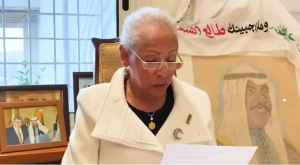São Paulo – The situation of businesswomen amid the coronavirus pandemic was the topic of a lecture hosted this Tuesday (20) by WAHI, the Women’s Committee of the Arab Brazilian Chamber of Commerce (ABCC), on the second day of the Economic Forum Brazil & Arab Countries. Kuwait Businesswomen Committee chair Hessa Al Sabah and Latin America representative of the G20’s Women in Business group in Saudi Arabia, Delia Raquel Flores.
Flores said women must be in power, rather than just empowered, to unlock real change in the global scene. “Governments and multilateral organizations must set the example by laying down standards and identifying what enables women-owned businesses to grow. To that end, our key recommendation is towards faster government action to ensure gender parity in the corporate world and equal status for women in business.”
The Women in Business group works on several fronts, which Flores discussed: “Leveling the playing field where women and their leadership potential can be unlocked, by reforming laws concerning maternity and paternity leaves, for instance.” She also mentioned promoting an inclusive environment, encouraging female entrepreneurship and amplifying synergies, including female diversity in decision-making settings.
Flores argues that attaining those goals requires tangible action and a cultural shift towards an environment where women and men support equality and leadership through complementary work. “We will work together to achieve actual, sustained progress.”

Pandemic
Al Sabah said the crisis has burdened women with household issues in addition to work and keeping families safe amid the pandemic. She also said domestic violence against women has soared since shelter-in-place orders began. “That is clear to see in non-Arab countries, where support center and human rights organizations are present, and the numbers are lower in the Arab region – not because women are not victimized by violence there, but because of the lack of support and the social culture that keeps them from calling out for help, even if they are wealthier.”
She also said working women are considered the weakest link in the private sector whenever a crisis strikes. “Most companies have dismissed women under claims that she can be taken care of by her husbands, fathers or brothers, and that is detrimental to women’s financial independence.” As for industries in which female workers prevail, she mentioned housing, hotels, food and retail. Al Sabah said implementing the United Nations’ 17 Sustainable Development Goals is important right now, particularly as regards gender equality.
Check out the full coverage on ANBA.
Translated by Gabriel Pomerancblum




